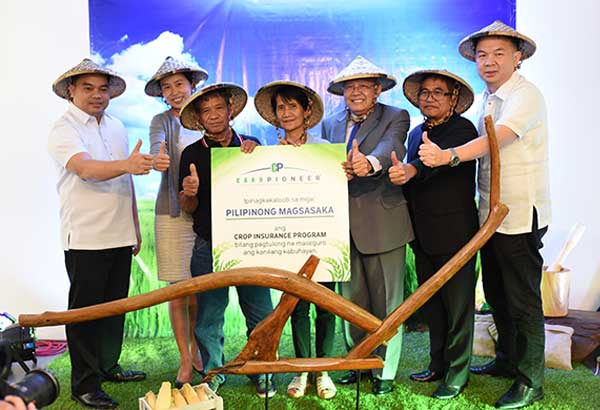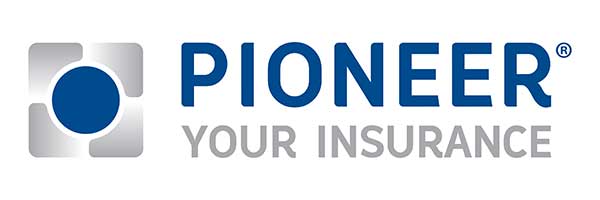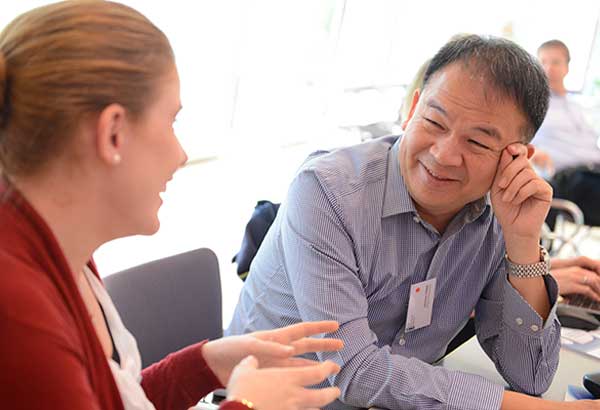Micro-insurance: an accessible, affordable safeguard for low-income Filipinos

MANILA, Philippines - When it comes to tackling financial responsibilities, many Filipinos used to set aside insurance as an optional cost; the benefits deemed a nice-to-have rather than a necessity.
However, following the rapid development of the micro-insurance industry in recent years, more Filipinos are gradually recognizing the comfort and security that insurance brings, even to those with limited means.

Specifically geared towards low-income households, micro-insurance offers bite-sized insurance products that effectively mitigate risks while reducing the vulnerability of those in the lower end of the market. According to a study by the Philippine Institute for Development Studies, the term “micro” pertains to the capacity of a program to handle the small, sometimes irregular cash flow of underprivileged families who have been excluded in the commercial insurance system.
The advent of micro-insurance may be traced to as early as 2006 with the issuance of the First Circular on Micro-insurance by the Insurance Commission that led to the creation of Mutual Benefit Associations. Until 2009, the bulk of what constituted micro-insurance products was primarily credit life insurance — a life insurance policy designed to pay off a borrower’s debt in case of death. Pioneer was one of the pioneers from commercial insurers that began product development in 2007.
Pioneer Life Inc. President and CEO Lorenzo Chan says they often refer to micro-insurance as sachet insurance or insurance that comes in affordable, bite-sized chunks. He added that tailor-fitting micro-insurance products first requires a deeper understanding of their partners and market, which in turn allows them to respond to various needs more effectively. “Traditional insurance primarily targets corporate and higher socio-economic classes, which comprise only about one percent of the country’s population,” he said. “On the other hand, micro-insurance is intended to cater to approximately 80 percent of Filipinos.”

Pioneer Life President and CEO was among the global experts tapped to discuss the role of micro-insurance in reducing the vulnerability of the poor during a conference in Luxembourg last June 2017 — Microinsurance Network/Victor Schwirkschlie
Having already established its expertise in a myriad of non-life and life insurance coverages, Pioneer began its foray into micro-insurance in 2007 by launching and evolving varied single and bundled offerings accessible to Filipinos form all walks of life. In a recent article, Insurance Commissioner Atty. Dennis Funa regarded CARD Pioneer Micro-insurance Inc. (CPMI) as “not only a leader in nonlife micro-insurance, it is, in fact, the very first micro-insurance company in the Philippines.” CARD Pioneer is a joint venture between Pioneer and CARD MRI, the country’s largest microfinance institution. Bundled offerings in micro-insurance can include a wide range of coverages including burial, personal accident, damage to property arising from fire, flood, typhoon or earthquake. Pioneer launched the first micro-crop insurance for farmers in 2016 and dengue insurance the year before that.
Chan said they were determined to target new markets and push the boundaries by introducing accessible insurance to millions of Filipinos, most of whom until recently could neither afford nor comprehend it.
He further adds, “To this day, insurance remains a product that is sold and not bought. It still requires pushing. No one wakes up in the morning saying they have to go and buy insurance. By introducing and evolving insurance for 80 percent of the population, by getting them to try it and benefit from it, they will hopefully gain familiarity and talk about it and continue to patronize it.”
Micro-insurance products must be accessible to the target market. For Pioneer, this means partnering with various channels of distribution. Such channels are those frequented by the mass market that may include pawnshops, rural banks, motor dealers or malls.
Required information has been simplified. Taglish is often used. Enrollments and claims can be initiated via SMS, calls or social media.
“Given that insurance premiums are meant to be affordable, this means small premiums which then require large volumes to ensure scale and spread to be commercially viable. Building scale implies a start-up period followed by a build-up phase which doesn’t happen overnight so patience is clearly in order,” Chan said. To date, Pioneer has over 18 million enrollments from a mere 28,760 in 2008.
This number has been helped in part by it’s commitment to pay micro-insurance claims within five to ten days from the time a claim is reported and requirements are complied with. Chan noted that paying all proper claims is one of the most effective measures for client retention as well as word of mouth generation. However, customer centricity also requires that they practice some flexibility with requirements if circumstances call for it.
“The market lives on a very tight budget and often do not have the means to wait for lengthy periods. During the aftermath of Yolanda, we had to be quick with alternative documentation requirements,” he said. “Back then, we promptly paid the claims of 20,199 families in Leyte and Samar. That’s 20,199 families less dependent on dole-outs and evacuation centers. That’s 20,199 families who started rebuilding soon as their claims were settled.”
While micro-insurance may not provide the market with all the needed coverage, it offers timely cash assistance, enabling those who suffered losses to start rebuilding their lives and properties, settle their bills, bury their dead and move on quickly.
Chan was recently elected to the Board of Directors of the Micro-insurance Network — a non-profit organization based in Luxembourg and the only international multi-stakeholder platform in the micro-insurance industry with experts committed to promoting the development and delivery of insurance services to low income people. The network serves as a platform for members to share and trade insurance expertise among 80 institutional members from over 40 countries, including those coming from the insurance industry as well as governmental and development organizations.
Pioneer is also an incorporator and member of the board of trustees of the newly-constituted Mutual Exchange Forum on Inclusive Insurance (MEFIN Network), a collegial body of insurance policy makers and regulators in Asia.
“If enough of us in the industry continue to improve and evolve and encourage the population to use insurance, I believe it will one day join the ranks of products being bought. For me, that day will come when I see several insurance products being bought in the neighborhood sari-sari store. I may or may not witness this in my lifetime but no doubt, the millennials in our midst will in theirs,” concluded Chan.
- Latest
- Trending
































